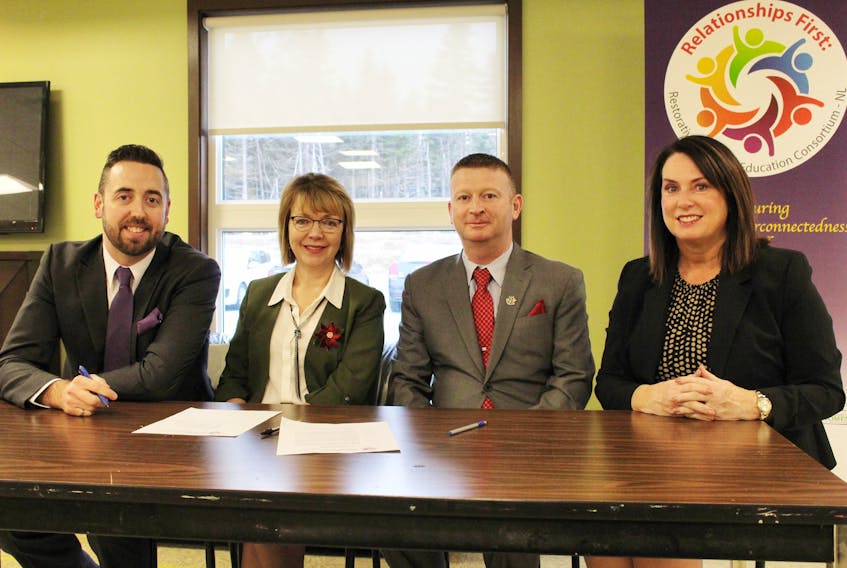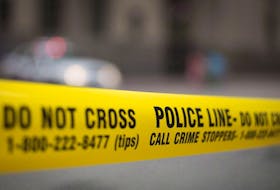Reaching a meaningful, satisfying and fair outcome through inclusion, open communication and truth is the basis for restorative justice.
This non-adversarial, non-retributive approach emphasizes healing in victims, accountability of offenders and the involvement of citizens in creating healthier and safer communities.
This year’s National Restorative Justice Week, scheduled for Nov. 19-26, will feature the theme Inspiring Innovation, which will offer an opportunity to recognize how restorative justice touches all sectors of life in unique and innovative ways.
Newfoundland and Labrador hopes to increase awareness of how restorative justice can support stronger, healthier relationships in the province’s communities and organizations.
“Restorative justice is not a new concept. We owe an immense debt of gratitude to aboriginal cultures (healing circles) for keeping restorative justice alive so that we can realize how it not only helps to address situations of serious harm, but also provides guidance for difficult conversations, and nurtures relational rather than individualistic cultures,” Dorothy Vaandering, faculty of education professor at Memorial University and the consortium director, stated in a news release.
“In Newfoundland and Labrador, we are coming to recognize, along with communities, schools, courts and governments across Canada, how important it is to rethink who we are and how we live so we can work for each other’s well-being.”
Vaandering was in Ottawa attending a national conference on restorative justice, but did attend the proceedings via Facetime on Wednesday.
The proclamation signing was hosted by Relationships First: Restorative Justice in Education Consortium including the Provincial Advisory Council on the Status of Women N.L., in collaboration with the Public Legal Information Association, the N.L. Sexual Assault Crisis and Prevention Centre and YWCA.
Government officials at the signing were Minister of Justice and Public Safety Andrew Parsons, Minister of Children, Seniors and Social Development Lisa Dempster, Minister of Education and Early Childhood Development Dale Kirby and Minister Responsible for the Status of Women Siobhan Coady.
In addition, members of the Royal Newfoundland Constabulary, Correctional Service Canada and a host of community groups attended the announcement.
“This is just not the four of us up here, this spans all of government. It is not justice, not education,” Parsons said.
“We need leadership from all of our departments. There are a lot of people outside of government who are helping to make this work.”.
Parsons said this province is lagging behind other jurisdictions and he hopes educating the young will be the best place to start.
He said teachers are a good example of that education, as they often see the children more than their parents do.
One of the schools participating in the initiative is Gonzaga High School, which has five teachers as part of the Relationships First initiative.
It is hoped that through the continued use of the circles model, students can attain life skills that enable them to build solid and healthier relationships and learn the valuable tools of conflict resolution and problem solving in the process.
“Restorative practices have refreshed our approaches to teaching and learning,” Gonzaga principal Krista Vokey said.
“As support for restorative justice grows, its implementation in schools will become more accepted and more requested when needed. Our youth need renewed focus on personal, real-life, face-to-face interactions and connections with others. In a world where relationships are often more virtual than real, it is refreshing and invigorating to return to a more authentic way of interacting where people are valued, honoured and celebrated.”
Vokey said there was a student who recently participated in one of the school’s circles who remarked, “it was the best thing they had ever done. I finally feel like I belong.”
“This is a fabulous means to build student relationships and foster a positive learning environment,” Vokey said.
The City of St. John’s will sign a restorative justice proclamation on Nov. 20, and a panel discussion is slated for Memorial University on Nov. 22 at 7 p.m. A guest panellist will participate from Nova Scotia, the province that is leading the charge in restorative justice programs.
The session will be in Room 1022 of the education building.









